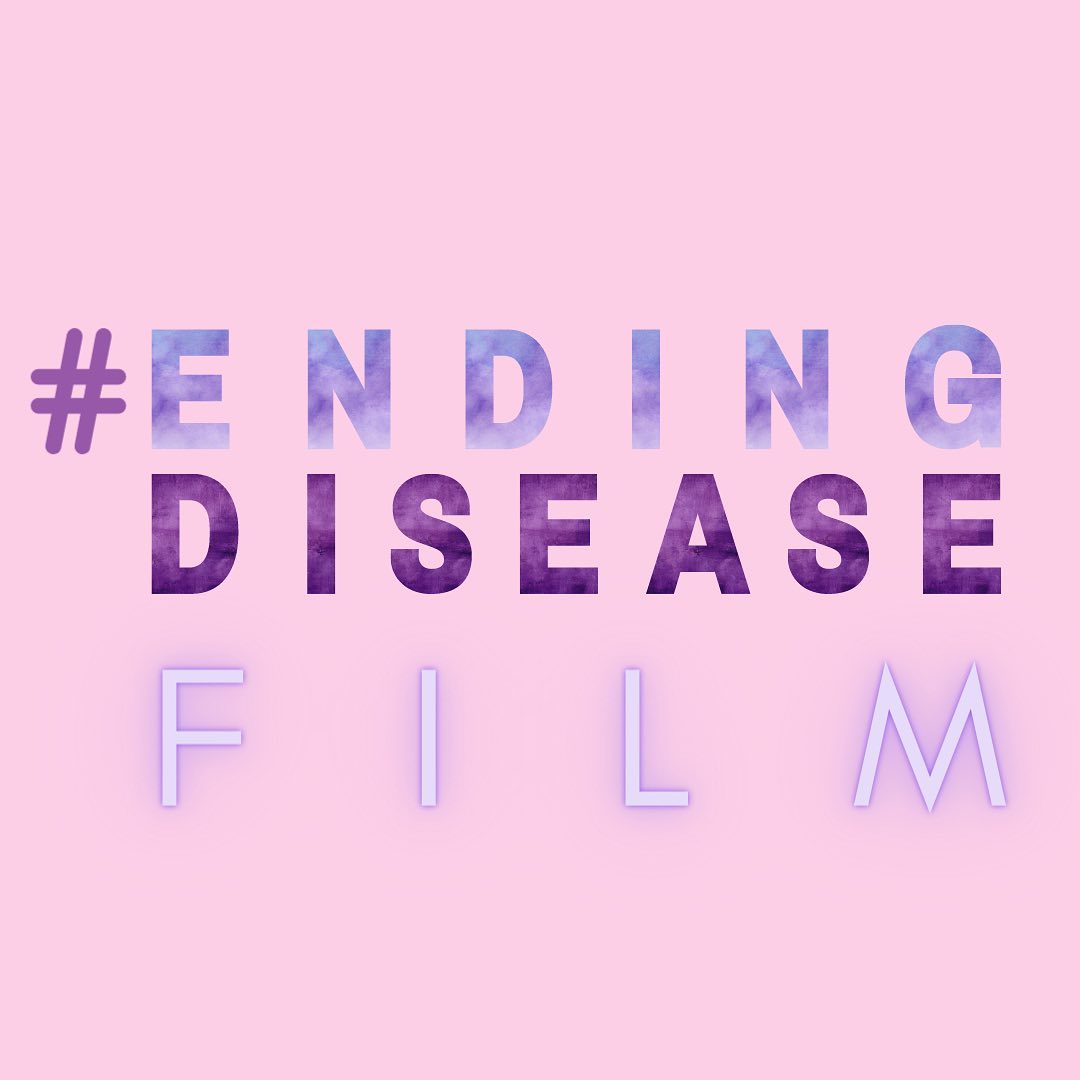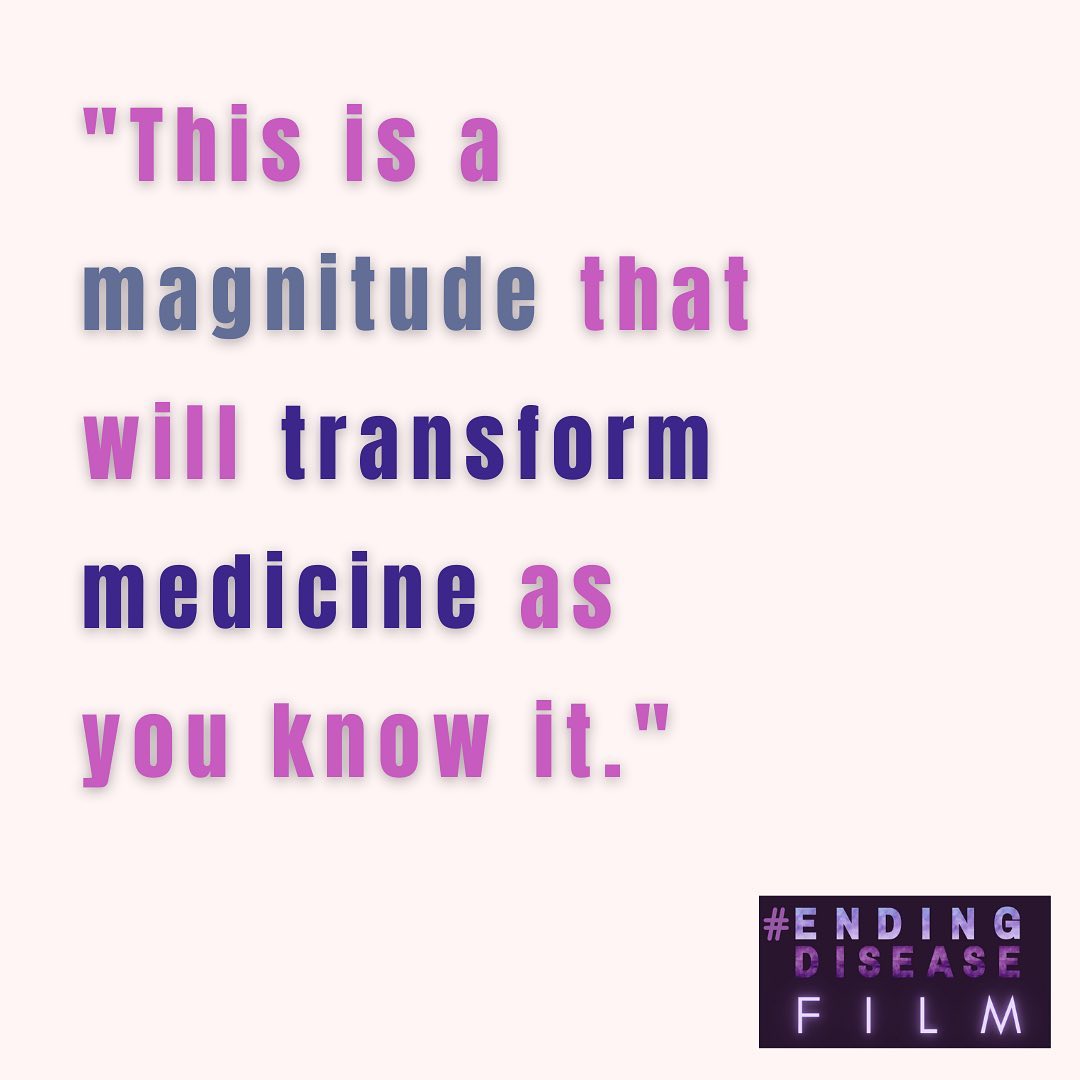“We stand on the shoulders of giants”. It is with those words that San Francisco resident Andrew Caldwell makes it crystal clear as to why he is participating in clinical trials for HIV/AIDS research; it is his duty. The new documentary Ending Disease takes viewers through roller coaster journey of emotions that does not only reveal the stories of the patients and the doctors who are working together, but it also showcases the moments that the families have together, during both the tragedies and the triumphs. I sat down with Caldwell recently to talk about his turn into unexpected advocacy and how he is displaying advocacy of his own, yet paying homage to those that came before him in his own life.

Michael Cook: As a San Francisco resident, you are right at the heart of so much of where the LGBT rights movement was born. Do you think that influences your advocacy?
Andrew Caldwell: Moving to San Francisco has inspired me to be more involved with my community and be more passionate about things like HIV/AIDS research, cures, & treatments. It’s been a great seven years that I have been here.
MC: HIV/AIDS is spoken about much more openly now, and while it does still have a stigma attached to it, it is nothing like the stigma that once was attached. What has made you want to get involved and become someone who is helping put forth such amazing change?
AC: Even since before I seroconverted and became HIV positive, I was involved with some other vaccine studies. It was through doing those studies that I got connected with doing other studies at the research clinic here in San Francisco that I have done the other studies at that. At one point, the insurance that I had was not the best and it would not cover all of the costs for the medications that I was on. I had to apply for government assistance programs, and I felt like I wanted to try and do something so I was not just taking from a system that I know is set up to help people who I know are much worse off than I am. That is why I continue to try to find opportunity to do different studies.

With this particular study, the doctor at the research facility mentioned it to me during a visit for another study. He said that on paper I looked like a good candidate, but we should speak more about it and that a lot went into it. I sat with it for awhile and decided that at that point, I had a better job and better insurance, but I know things are not better for a lot of other people. Having the opportunity to be part of a study that focuses on a cure I thought was really important because I know that treatment is not as easily accessible and available for most of the world as it is for a gay man living in San Francisco. I wanted to try and do something that would try and help with that in whatever capacity that I can. I have a healthy body and the time to do that, so I wanted to do it.
MC: Many would feel that speaking openly about being HIV-positive in a documentary and being part of these trials is a very brave thing to do. How do you feel about that?
AC: When the opportunity for the documentary came up, I didn’t think about how significant and important it was at the time. I understood the importance of the study, but not realizing that it would be something I would still be talking about. The decision to be a part of the documentary was really focusing on the part of being HIV-positive and the stigma that still exists with it and trying to humanize it as much as possible. Even though there are a lot of walls that have come down with being LGBTQ, there are still stigmas that exist with being HIV-positive. Having the opportunity to tell a very human story and be a part of something that is revolutionizing how medicine is done, I thought was a great opportunity. I did not really grasp the weight of what was happening medically until I watched one of the first cuts of the documentary. My story was the only one I could see being told; seeing the nine other stories being told with other people that are doing things that are going to revolutionize medicine was amazing.

MC: Many people have compared today’s pandemic with the earlier days of HIV/AIDS. From your perspective, do you see the similarities that many people have mentioned?
AC: I have friends of that generation who have relayed that sentiment to me, but I don’t know if I could begin to compare it. One of the biggest contrasts that I can think of is that I feel that there has not been enough collective mourning, similar to the collective grieving that happened during the AIDS pandemic. I really feel like that collective grieving is what propelled a lot of people to to start taking action and to rise up and do something to make things better. I feel like that comes from the top down. The only thing you hear about people that died during this pandemic is numbers getting bigger and bigger. I don’t feel like there have been stories told about those people, and I do feel like that is something that came out of the AIDS pandemic. Like with the AIDS quilt; having a massive display of individual human lives that were lost and what that represented and who they were on panels of a quilt. I think that was a brilliant display of mourning and I don’t think that has happened yet with this pandemic. I feel like there is responsibility missing with how people are handling themselves during this pandemic because they are not grieving those that have been lost. When we collectively grieve, we want to congregate, we want to be together, this is the exact opposite of what we can do right now and it has been really hard.
MC: The ghosts of San Francisco’s LGBT activism are a true legacy in our community. What it is like truly living within our history?
AC: The single thing that I have done since living here and has kept me grounded with the LGBTQ+ history of San Francisco is singing with the San Francisco Gay Men’s Chorus for six years. I left the chorus just last season to take a year off with the intent of rejoining now (laughs) and I think that is probably going to be delayed. The chorus itself is so ingrained into the history of the city. There are so many ghosts; we stand on the shoulders of giants. There are so many men that have come through that Chorus for the forty plus years that it has been around. Our Christmas concert was the first concert of the season, and we would pass out slips of paper that had the names of chorus members that had died, either from the AIDS pandemic or from other reasons. We would carry slips of paper in our pocket so the entire brotherhood of the chorus was on stage for the first concert of the season. That was always very special and it was special getting a name, and talking to a person next to you that knew them or sharing stories about them.
MC: The documentary will tell your story in its own way; how do you plan to continue your advocacy going forward?
AC: I still try to participate in studies when I can. They don’t come up as often because so much time and resources are being dedicated to COVD researchers and cures. Other than that, I don’t ever find myself being a public activist or a community organizer. I try to be an activist in myself just by being open about my experience. Being open at work, or with my friends, or my family and just trying to be as honest and as authentic as I can about my experience. There is nothing that I have gone through that is unique. People have chronic illnesses all the time, people go through clinical trials all the time. It is trying to connect those experiences that other people have with this experience with HIV/AIDS and make the connection that it is not something to be afraid of.
MC: How have you stayed inspired and focused during this time in our country?
AC: Trying to stay positive and optimistic about the other side. I try to avoid talking about things going “back to normal”. The world is going to look completely different. It’s staying positive about what things will look like on the other side and it’s knowing that things will be fine. It’s going to look different, it’s going to be weird, there are going to be people missing that we want to be here, but it’s going to be fine.
‘Ending Disease’ premieres Friday December 4th on virtual theater. Click on endingdisease.com for more information.
